SEE ADDICTIONS - Page 1 - 2 - 3
ADDICTION STORIES- ADDICTION RECOVERY |
| Addiction Recovery |
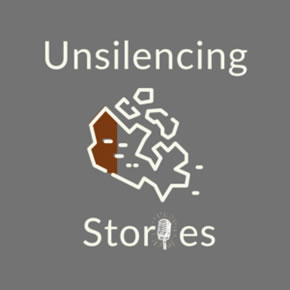
Unsilencing Stories is a podcast reflecting the voices and experiences of people in smaller centres in B.C. and Alberta who have lost loved ones to fatal opioid overdoses.
Across Canada, more than 30,000 people have died from toxic drug poisoning since 2016. In small towns and communities, the risk of overdose is much higher than in urban areas, because of a lack of harm reduction services and stigma about substance use.
In this podcast, you will hear people in Cranbrook, Prince George, and Chilliwack in B.C., as well as Medicine Hat and other parts of Alberta interviewing one another about their loved ones and grief.
The podcast is part of a community-based study facilitated by Aaron Goodman, Ph.D, faculty member at Kwantlen Polytechnic University in Surrey, B.C., and students Jenna Keeble and Ashley Pocrnich
|

Inpatient Treatment
In This Article
Types of Therapies Used in Inpatient Rehab
When to Seek Inpatient Treatment
Benefits of Inpatient Rehab
Inpatient Rehab Timeline
Preparation for Inpatient Rehab
Cost and Insurance Coverage for Inpatient Rehab
Inpatient Rehab vs. Outpatient Rehab
How to Choose an Inpatient Rehab Center
What Is Inpatient Treatment/Rehab?
Inpatient rehab is an effective treatment method for substance use disorders (SUD). It is available for people with drug use disorders or alcohol use disorder (AUD). Some facilities treat both types of addiction, while some specialize in one or the other.
SUDs occur in a spectrum of severities — meaning that the condition can be classified as mild, moderate, or severe. Inpatient rehab is especially useful for people suffering from “severe” cases. It is also advisable for people suffering from co-occurring disorders.
A person with co-occurring disorders suffers from a SUD as well as a mental health disorder, such as alcohol addiction and depression or opioid addiction and anxiety.
Inpatient rehab happens at licensed residential treatment centers. They offer 24-hour comprehensive, structured care including schedules, a substance-free environment, safe housing, and medical attention.
Detoxification is usually the first step in an inpatient rehab treatment program. Programs typically last from 30 to 90 days. However, if further treatment is necessary, additional options are available.
Inpatient treatment centers may use several different therapeutic approaches, but all focus on helping the patient overcome their addiction and go on to live a sober and successful life after treatment.
Article provided by:
Jessica Cooper
Community Outreach | Addiction Group
10 S Dearborn Street, Chicago IL 60603
407-490-3869
PLEASE VIEW ALL DETAILS ON THE WEBSITE
|
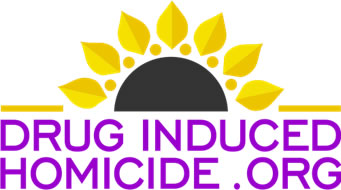
A drug toxicity death occurs every 7 minutes in America. Drug toxicity is now the leading cause of death for young Americans, who are more likely to die from drug toxicity than from car accidents, firearms, or illness.
Drug dealers are selling counterfeit pills pressed to mimic legitimate pharmaceutical medications such as Xanax, Percocet, and Oxycodone. Instead they contain nothing but useless filler and illicit Fentanyl – which is 50 to 100 times stronger than Heroin – This reprehensible and despicable act is being done solely for financial gain, with absolute reckless disregard for human life – Unleashing what can only be described as the deadliest chemical attack in American history.
600,000 Drug Toxicity Deaths 2013 - 2020
Please view website for some Special Resources
Also see Facebook page
Alexandra Carol Capelouto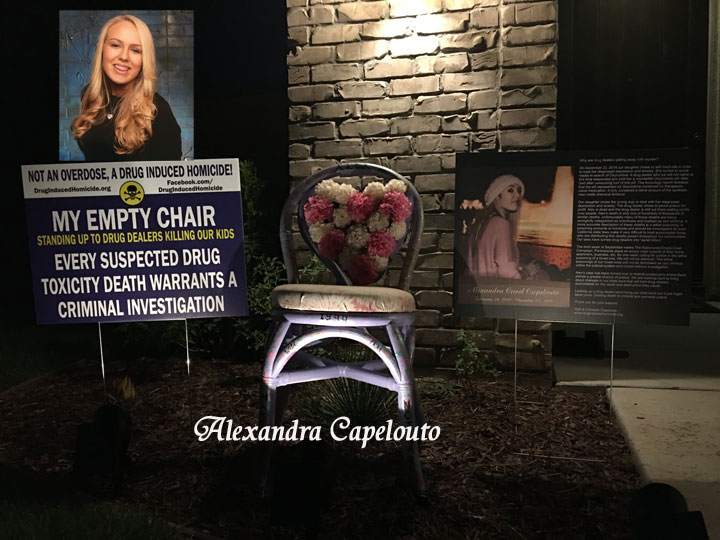
February 24, 1999 ~ December 23, 2019
Our beautiful Alexandra Carol Capelouto was born on February 24, 1999 in Mission Viejo, California. She was always an extremely intelligent, artistic, beautiful young woman. Alex always had a loving heart that felt everything so deeply. She had her entire life ahead of her.
Unfortunately our sweet girl was taken from us on December 23, 2019. So to say this holiday season has been a rough one would be an understatement. Although we know she is in a much better place, our hearts are absolutely broken.
For all you parents out there, cherish the time with your family and never take tomorrow for granted.
XXXXXXXXXXXXXXXXXXXXX
Matt's daughter died from a counterfeit oxycodone pill laced with fentanyl, he’s now fighting for legislative change
Officials continue to warn the public about the fentanyl crisis here in Southern California.
News Channel 3’s Madison Weil spoke with one father looking to raise awareness — sharing his own heartbreaking story after losing his daughter.
“I got a call from my youngest daughter Sky...and she simply said Dad get home...Alex is dead,” said Matt Capelouto. “I rushed home...my wife had gone into her room and found her dead on her bed.”
Capelouto shares that his 20-year-old daughter Alex was a student at Arizona State University on a full-ride academic scholarship. She was home for Christmas break.
“Alex suffered from anxiety and depression heavily. She always bore the weight of the world on her shoulders,” he said.
Capelouto says it was just two days before Christmas in 2019 when she died. The initial investigation revealed she had communicated with a drug dealer on social media — not looking for fentanyl, rather oxycodone.
“Obviously no parent condones their child turning to anybody for any illicit drug, but nonetheless, she thought she was getting oxycodone. That’s what the drug dealer represented to her,” he said.
It’s a crisis Capelouto fears will take the lives of others.
“She took a pill late at night before going to bed. I believe she was just trying to self-medicate and get a good night’s sleep. And that drug dealer chose to peddle poison for profit and killed my daughter,” he said.
Capelouto participated in a press conference alongside Riverside County District Attorney Mike Hestrin this month to raise awareness about the issue.
Hestrin says people are being sold counterfeit pills by dealers that look identical to legitimate pills: Valium, Percocet, oxycodone, etc. He says fentanyl has been found in every kind of drug, including cocaine, methamphetamine, ecstasy. The DEA estimates that 40% of pills being sold on the street right now are laced with fentanyl.
“These people are being poisoned. The deaths from fentanyl have been doubling year after year,” said Capelouto.
Hestrin says fentanyl deaths are up 800% locally because of it.
Capelouto says he took his daughter’s case to Mike Hestrin when it happened. “He listened, he heard us and he agreed with me at the time that this is murder.”
Capelouto’s story is just one of many that have led district attorneys across the state to take a more aggressive stance. Drug dealers can now face murder charges if someone dies.
“What is your message for parents and what would you encourage them to do?” asked Weil.
“If you cannot 100% guarantee that your child will not try one drug one time...you can’t guarantee that your child won’t be a victim of fentanyl,” said Capelouto, encouraging parents to have this conversation with their kids.
He added he’s incredibly grateful to District Attorney Mike Hestrin for his work on the pervasive problem. Capelouto says he and others impacted are currently working on a bill that would increase the penalties for drug dealers nationwide.
Anyone interested in working alongside their group is encouraged to reach out to him: matt@druginducedhomicide.org |
June Lawrence is a recovering alcoholic. She’s proud of her journey and knows the incredible amount of work that goes into sobriety every single day, and she’s on a mission to support others find their way to a happy, healthy life through her site, Recovery Island.
PLEASE SEE JUNE'S "RECOVERY ISLAND" WEBSITE
|
EHN TREATMENT CANADA

OUR TREATMENT PROGRAMS
Types Of Treatment Programs
The Edgewood Health Network Canada offers a unique approach to the treatment of addiction and related mental health disorders across the country. We offer a wide range of options, available in both English and French, depending on each individual’s specific needs.
So whether it’s an intensive inpatient program, family support programs or access to some of our varying outpatient services we can customize a tailor-fit program that is right for you.
DETOX
INPATIENT TREATMENT
INTENSIVE OUTPATIENT TREATMENT
INTENSIVE OUTPATIENT PROGRAM FOR WORKPLACE TRAUMA
MILITARY, VETERAN & FIRST RESPONDERS PROGRAM
AFTERCARE
EHN FAMILY SUPPORT
EXTENDED CARE PROGRAM
PLEASE VIEW ALL DETAILS ON THE WEBSITE
|
Nashville’s Premier Alcohol and Drug Addiction Detox Program

Custom Designed to Provide the Most Accurate, Compassionate Care
Nashville Detox is the leading provider of drug and alcohol detoxification in the Nashville area.
We understand that seeking help for alcohol and drug detox can be overwhelming and intimidating. Your comfort and safety throughout this process is our priority, and even though we are a medical detox program, you will be cared for in a home-like setting with your own spacious room. Each client is unique, and our experienced medical staff will provide a thorough evaluation to determine the best plan for every individual upon entry to our program.
Throughout the detox process, our expert staff will continuously monitor your progress to maximize your comfort. Our team will work with each client and their support system to determine a plan for the next best steps on your path to addiction recovery. Our team will guide you through the entire process, from the first phone call, throughout the admissions process until you step foot in our facility. We are here to provide expertise to individuals and families through best in class detox and to provide access to a network of the country’s best treatment options.
PLEASE VIEW ALL DETAILS ON THE WEBSITE |
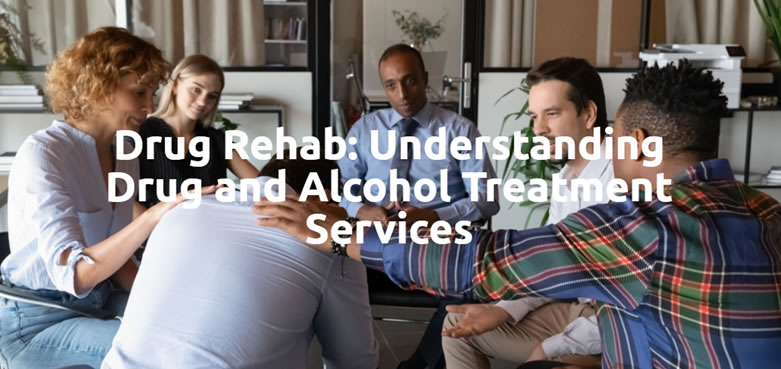
As of late, the United States struggles with an overwhelming drug and alcohol epidemic. Alarmingly, the rate of drug overdoses rose 30% from 2019 to 2020. In numbers, this means that 93,331 individuals lost their lives unnecessarily to substance abuse. More alarmingly, the rates of overdose death increased by approximately 450% from 1999. As a result, tens of thousands of lives have been claimed, causeless.
One of the main culprits is something that has the power to both heal and hurt–opioids. Indeed, three-quarters of all recent overdose-related deaths can be attributed to opioids, even as drug rehab programs advance their methods. When opioids originally came onto the market they were dubbed as “safer than barbiturates,” which made medical providers jump at the chance to provide patients with much-needed pain relief.
Unfortunately, the opposite was true, leading to the $2.5 trillion debt the United States amassed from the opioid crisis. It also led to the 80% of deaths attributed to fentanyl, a strong prescription opioid that helps individuals with severe and strong pain. Although harrowing statistics such as these may make the United States’ alcohol and drug crisis seem hopeless, there is a way to overcome it. The right drug and alcohol rehab centers can help individuals reclaim their lives from the clutches of addiction. But how do you choose the right one for you?
What to Know Before Choosing a Drug Rehab Center
Choosing an alcohol and drug rehab center can be a difficult choice as there are so many options available. Understanding the basics behind what to expect before choosing a drug and alcohol treatment provider can make the process much easier.
Understanding the Continuum of Care: What Do They Do in a Drug Rehabilitation Center?
A drug rehabilitation center focuses on helping patients get sober and maintain it for the rest of their lives through various treatment programs. Many people with a drug and alcohol addiction know that they need help. They also understand that they can’t help themselves despite their earnest efforts. Yet, they don’t understand where they can get help and how to start the recovery process in the first place.
The continuum of care in regards to drug rehabs means the levels of care one struggling with a substance use disorder can receive. Each type of rehabilitation program acts as a step up or a step down in intensity. Drug and alcohol treatment programs that make up the continuum of care include the following (in order from least to most intense):
- Outpatient programs – A few hours a week
- Intensive outpatient programs – A few hours a week, two to three times a week
- Partial hospitalization programs – Encompasses the entirety of the week (usually not including weekends)
- Inpatient residential treatment programs – Patients live at a facility with a less rigid structure
- Inpatient treatment programs – One of the highest levels of care that entails a strict structure with hard start and end times
As the recovery process for substance abuse isn’t linear for many, an individual may move up or down the continuum of care levels. Despite this, the continuum of care model states that those struggling with a substance use disorder should continue to receive care for their whole lives.
This doesn’t mean that they will need to attend hours of their time in treatment for the rest of their lives. It just means that they should continue to keep their substance use disorder in check. After all, addiction is a chronic relapse disorder.
PLEASE VIEW MANY MORE DETAILS ON THE WEBSITE
|

A dog isn’t just a cute and fluffy pet that brightens the atmosphere at home. With the right dog breed, a dog can also be a valuable member of the family by protecting your property from those who would want to harm it. Not every dog can become a guard dog, naturally, which is why this guide exists.
This guide covers everything you need to know when buying a guard dog throughout the following sections:
Do You Need A Guard Dog?
Qualities Needed In A Guard Dog
Best Dog Breeds For Protection
Breeds To Avoid
Across these, you’ll learn if you need a guard dog, what traits make a good guard dog, which breeds are great protectors, and which ones aren’t. We can’t do a deep dive on every breed we’ve mentioned below, so we’ve included links to materials that contain more information.
PLEASE VIEW ALL DETAILS ON THE WEBSITE |

The extent of addiction in the United States alone is overwhelming. The most recent nationwide research from 2012 estimates the number of people struggling with addiction between 24 and 25 million people. That’s a little over 9 percent of the population and doesn’t include the recent national challenge with opioids. With so many people struggling with addiction, the need for addiction therapy services has never been so obvious.
Initial Addiction Therapy Services
Before entering into primary addiction therapy services, such as outpatient rehab, many people need the initial addiction therapy services of a detox program. Detox programs help you with withdrawal management. Withdrawal symptoms can range from mild to intense and may include:
Nausea
Tremors
Fever
Muscle Aches
Intense cravings
Insomnia
Depression
While these symptoms will make you deeply uncomfortable, they aren’t dangerous on their own. The real challenge with these withdrawal symptoms is that they make people relapse during unmonitored, at-home attempts at detox. People then start using again just to put a stop to the withdrawal symptoms.
A detox program can use medications that help limit the intensity of your withdrawal symptoms. That helps prevent a relapse where a person just wants to escape those symptoms.
For alcohol and benzodiazepines, however, attempting unmonitored, at-home detox is dangerous. Alcohol withdrawal can cause delirium tremens, which can lead to seizures or death. Benzodiazepine withdrawal can also lead to fatal grand mal seizures. The substance abuse treatment programs Northern Illinois Recovery Center employs use prescription medications to prevent these fatal outcomes.
PLEASE VIEW ALL DETAILS ON THE WEBSITE
|
COVID-19 Health Risks | Substance Abuse, Overdose, & Suicide

The COVID-19 pandemic has posed a number of risks since its spread in early 2020. Even those not directly affected by the virus may experience health risks associated with lockdowns, social distancing, and other protective measures designed to keep people safe.
This year has also seen a spike in mental health issues due to COVID-19. The pandemic has led to feelings of isolation, loneliness, and helplessness; more people have reported considering suicide in the past year because of the pandemic.
Mental health issues can cause people to turn to substances, such as alcohol or prescription drugs, to self-medicate or escape their problems.
Unfortunately, using any kind of substance may cause more issues down the road.
Questions About Treatment?
Ark Behavioral Health offers 100% confidential substance abuse assessment and treatment placement tailored to your individual needs. Achieve long-term recovery.
People also read
Alcohol And COVID-19
How To Help A Loved One
Covid-19 Overdose Deaths
Healthcare Worker Burnout
8 Signs You’re Drinking Too Much
PLEASE VIEW ALL DETAILS ON THE WEBSITE |

Miracles Recovery Center is an addiction treatment center
Finding your path in recovery from addiction can be daunting. Miracles Recovery Center is a drug and alcohol treatment facility providing Partial Hospital Program (PHP) and Intensive Outpatient Program (IOP) levels of care in Port St Lucie, FL. Our dynamic team offers an integrated approach using a variety of therapeutic modalities for addiction treatment.
We collaborate with each individual, their family, and our clinical team to develop an individualized addiction treatment plan which will assist in meeting their needs, identifying their goals, and reaching their objectives in addiction treatment. The path to addiction treatment and addiction recovery looks different for everybody, so Miracles Recovery Center is dedicated to meeting an individual where they’re at. Our rehab facility is a safe, loving, warm, and caring place to recover.
We are here to guide you into the next part of your journey free from addiction. Our drug and alcohol addiction treatment center on the Treasure coast wants you to be free from addiction to drugs and alcohol, and become the individual you have always wanted to be.
You are a Miracle. You are worth it.
PLEASE VIEW MANY MORE DETAILS ON THE WEBSITE
|

What is Dual Diagnoses
Many people suffering from a substance use disorder also have an existing mental illness. This is known as a dual diagnosis or co-disorder and it affects around 45 percent of Americans.
People with a dual diagnosis require a specialized, integrated treatment plan that treats both disorders as interconnected mental health issues.
Most Common Co-Occurring Disorders
There are some mental health disorders that are most commonly seen alongside addiction. Often, these mental illnesses can trigger substance abuse, particularly if they are untreated.
Common mental illnesses that co-occur with substance abuse include:
Attention-Deficit Hyperactivity Disorder (ADHD)
ADHD is a mental health disorder that is typically diagnosed during childhood but can last into adulthood. People with ADHD usually have difficulty concentrating, and have problems with paying attention and controlling their impulses.
Stimulants are the primary medication used to treat ADHD. However, stimulants are highly addictive when not used as prescribed. People with ADHD can easily become addicted to stimulants, especially if they are not being adequately treated for their disorder.
Table of Content
What is Dual Diagnoses
Table of Contents
What is Dual Diagnoses
Most Common Co-Occurring Disorders
Symptoms of Co-Occurring Disorders
Treatment for Dual Diagnoses
Help for a Co-Occurring Disorders
Get Help Today
Get a Call
FACEBOOK PAGE
PLEASE VIEW MANY MORE DETAILS ON THE WEBSITE |

Alcohol Addiction Treatment Services
The New Directions for Women treatment approach includes a full continuum of care so women can enter treatment at the right intensity, depending on the severity of their disease. Our programs include our onsite social model detox, residential rehab, partial day program (PDP), intensive outpatient program (IOP), intensive sober living (ISL), and general outpatient services, such as individual and group sessions.
Being a women’s only addiction treatment program, we provide gender separate, culturally relevant and holistic addiction treatment services that meet the special needs of women, women with children, pregnant women in any trimester, and their families that suffer from the chronic fatal disease of addiction.
Alcohol Addiction Treatment Services
With over 40 years of experience in successfully treating women and their families, we have found that women recovering among other women, dealing specifically with issues such as relationships, pregnancy, menopause, and self-esteem in gender specific groups has a profound effect on the recovery process. Our holistic approach offers a variety of services.
Types of Treatment for Women in Addiction:
Yoga
Acupuncture
Psychodrama
Equine therapy
Mindfulness meditation
Physical exercise
Art
Gardening
Many varieties of experiential therapy
Our multi-disciplinary Treatment Team, comprised of Master’s Level Licensed Therapists and fully Certified Addiction Counselors, is passionate about providing comprehensive, individualized care with a recommended length of stay of 90 plus days. Research consistently shows that the longer a woman is in treatment to secure her foundation in recovery, the better outcome she will have for lasting abstinence and living a life beyond her wildest dreams.
PLEASE VIEW MANY MORE DETAILS ON THE WEBSITE
|
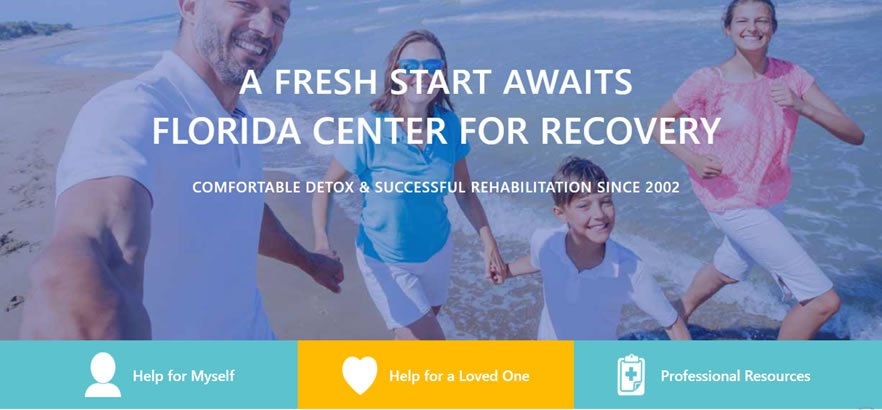
Detox and Rehab Center in Florida
Florida Center for Recovery (FCR), a leading addiction treatment center in the US, provides supervised medical detox and rehab programs to treat alcoholism, drug addiction and co-occurring mental health disorders such as PTSD, depression and anxiety. We are a 72-bed rehab facility accredited and certified by The Joint Commission, which sets the standard for delivery of safe and effective care of the highest quality and value for our clients. As a licensed detox and addiction rehab facility in Florida,FCR provides treatment for those struggling with the disease of addiction throughout the nation. At any given time we have clients from New York, New Jersey, Pennsylvania, Michigan and Ohio, to name a few, who have traveled to our Fort Pierce rehab facility for the complete and the professional care they deserve.
Our Florida Drug and Alcohol Rehab offers inpatient addiction treatment programs for both men and women 18 years of age and older. Our specialized addiction treatment programs include: trauma therapy (Rapid Resolution Therapy®), pregnant women rehab program, military/first responders rehab program and chronic relapse program.
FCR rehab center’s history started on Long Island in 1995, where our founder, Jack Hamilton, opened his first facility. In 2002, broadening his vision of bringing comprehensive yet affordable treatment to heal and nurture individuals struggling with addiction, he established FCR on the beautiful Treasure Coast of Florida.
PLEASE VIEW MANY MORE DETAILS ON THE WEBSITE |
What to Know About Binge Drinking
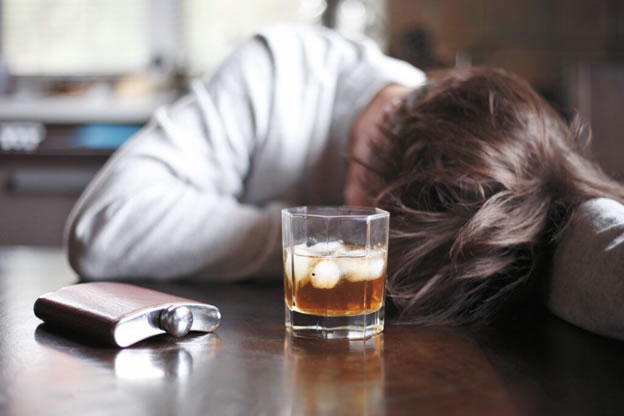
Alcohol has been around since ancient times. Its use has been traced back 10,000 years, when it was first consumed for its psychoactive effects. Today, it fuels a billion-dollar industry and is socially accepted almost globally, having become a major part of human recreation and consumption.
While many things about this drug have changed in the last 10,000 years (like flavoring, alcohol content, and most definitely the packaging), some things about it remain the same. It is still a mind-altering substance, can affect the brain both long-term and short-term, and can be addictive. When consumed too often, in copious amounts, and recklessly, it can severely alter a person’s life, and the lives of those around them.
One of the dangerous forms of alcohol use is binge drinking, which is drinking a large amount in a brief period. If a person makes this a habit, this pattern of abuse can eventually result in a serious addiction.
What is Binge Drinking?
Binge Drinking: A College Rite of Passage?
What Does Binge Drinking Look Like and How is it Dangerous?
When Binge Drinking Becomes Alcohol Use Disorder
Determining Whether You Binge Drink
Ways to Manage Drinking
Granite Recovery Centers
Granite Recovery Centers - 6 Manor Parkway, Salem, NH 03079 - 855.712.7784
PLEASE VIEW ALL DETAILS ON THE WEBSITE |

What is heroin?
When it comes to notoriously lethal and highly addictive drugs, heroin is one of a small handful that comes to mind. Made from the opium poppy plant, heroin’s place in human history is both a hopeful and tragic one. Heroin was created to find a non-addictive alternative to opium and morphine — and heroin was once hailed as that wonder drug. It soon proved to be one of the most dangerous and addictive drugs known. Today, heroin is outlawed in the United States and is responsible for over 10,000 drug overdoses a year.
Article contents
What is heroin?
Heroin in the tech industry
Heroin’s history
Opioid or opiate?
How much heroin is used in the United States?
Heroin use in colleges
Signs of heroin use
Heroin’s effects
Heroin withdrawal
Physical changes to the brain
Heroin and opioid use in high school
Emergency treatment for overdose
Special risks of heroin
Addiction treatment
Conclusions
PLEASE VIEW ALL ABOVE ARTICLE DETAILS ON THE WEBSITE
|

CRIME VICTIMS RIGHTS RESOURCES
Many of the current laws that favor the rights of the criminal over the rights of the victim need to be changed. Here is the link that is the first step in contacting your Congressional representatives to begin that process of change:
https://www.house.gov/
Addiction Resources
Additional Addiction Resources
Bullying - Rates, Tips & Resources
Compassionate Friends
DeadbeatWatch.com
Dept. of Justice Office for Victims of Crime
Detox Local
Federal Trade Commission's Identity Theft Clearinghouse
Free Legal Forms
Homicide Survivors
Metroplex C.O.P.S.
Mothers Against Drunk Driving
Murder Victims.com
National Center for Victims of Crime
National Criminal Justice Reference Service
National Domestic Violence Hotline
National Neighborhood Coalition
National Organization on Male Sexual Victimization
National Organization for Victim Assistance
National Rifle Association
Parents of Murdered Children
Post-Traumatic Stress Disorder
Privacy Rights Clearinghouse
Rape, Abuse & Incest National Network
RemoteCom - remote computer monitoring
Safe Stars Neighborhood and Home Safety Guide
Survivors of Violent Loss
U.S. Concealed Carry Association
U.S. Department of Education Campus Security & Safety
Verizon's Hopeline domestic violence phone program
PLEASE VIEW ALL OF THE ABOVE DETAILS ON THE WEBSITE |

Phoenix Rising Recovery
Is an addiction treatment facility in Palm Desert, California that’s dedicated to helping clients rise above their past trauma and addictions into happier, healthier lives. Our team understands the effort and commitment necessary to begin recovery. Therefore, we utilize trauma-informed care that addresses each client individually and helps them develop a plan for lifelong recovery.
Addiction Treatment Center
Residential Treatment Program
Outpatient Drug Rehab
Intensive Outpatient Program
Partial Hospitalization Program
Sober Living Program
Aftercare Programs for Substance Abuse
Alumni Program
Phoenix Rising Recovery - 35450 Pegasus Ct, Palm Desert, CA. 92211 - 866.985.1103
PLEASE VIEW ALL DETAILS ON THE WEBSITE |
Green Mountain Treatment Center
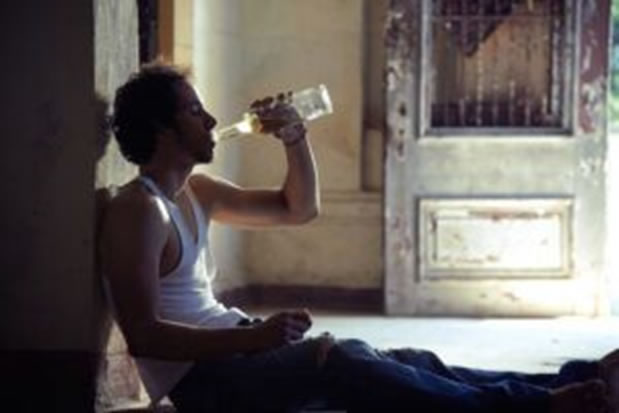
Alcohol Consumption During COVID
During times of stress, people often reach for alcohol. A substance long-relied upon for social relief, celebratory occasions, and for pleasure, it is also used as an escape mechanism, or to cope with difficult times, tiring days, or distressing situations. The latter scenarios are played out in all pockets of society—from mothers clamoring for their ‘wine-thirty’ after a long day with their kids, Wall Street financiers hitting the bar after work for whiskey sours, college students partying nonstop after finals week, to union workers gathering at a pub for beers after their shift is done. This socially accepted, popular way to unwind releases inhibitions and temporarily abates worry and anxiety from the day, week, month, or year. In cases of extreme use, these drinking patterns increase and evolve in severity, and problems begin to crop up. This is recognized as Alcohol Use Disorder, which wreaks havoc in the drinker’s life and for everyone around them.
So, naturally, in a year like 2020, faced with the blistering reality of the COVID-19 global pandemic, people are reaching for the bottle more often than not. There is considerable fear of the unknowns surrounding the virus, and it is a time unlike anything we have ever experienced. We don’t know when or if things will ever return to normal.
In order to better understand the dangers posed from indulging in a ‘quarantini,’ or recognizing trouble curtailing alcohol intake, we broke down why people are drinking so much right now, why it could lead to consequences, and what you can do if you or a loved one can’t stop.
Green Mountain Treatment Center
Residential Primary Treatment Program for Addiction
244 High Watch Road, Effingham, NH 03882 - Admissions: 866-597-1404 - All other calls, dial: 603-230-2448.
PLEASE VIEW ALL DETAILS ON THE WEBSITE |
RECOVERY VILLAGE FOR LOVED ONES

Watching a friend or loved one struggle with substance misuse and addiction can be an emotionally painful experience. You may try everything in your power to help a family member with drug addiction, but it often feels as if it isn’t enough.
Supporting someone you love through the recovery process is a difficult journey. Family members who are unequipped to deal with an addicted person often unknowingly act in counterproductive and enabling ways. Learning more about addiction and taking care of your own mental health is crucial to being an active ally for your loved one’s treatment.
Fortunately, many resources are available to help family members and other loved ones of someone with a drug addiction. Support groups, reading material and therapy sessions can give families a better understanding of addiction, how to provide support and how to ensure their own mental health remains a priority.
Table of Contents
Signs of Drug Addiction and Alcoholism
Supporting vs. Enabling Behaviors
Support Groups for Family Members
Resources for Friends and Family
Get Help Now
PLEASE VIEW ALL DETAILS ON THE WEBSITE |

Drug Abuse And Addiction Information
Learn what each of the commonly abused drugs listed is, how they work, their level of addictiveness, what their symptoms are when abused and their withdrawal symptoms.
For many years, South Florida has been the most significant drug entry point in the country. Cocaine, marijuana, heroin,
and prescription drugs mainly find their way into the country through this state. West Palm Beach is one of these entry points because of its accessibility to the ocean.
It’s a common vice for peddlers to sneak drugs into the US via boats, planes, or people smuggling. Furthermore, there are a lot of people willing to buy illicit drugs, including residents and tourists.
The high volume of drug and alcohol accessibility and abuse in West Palm Beach calls for intervention measures. For those looking for addiction treatment resources or treatment centers, you’ve come to the right place. Read on to find more about addiction, addiction treatment programs, treatment centers, and rehab costs.
Florida: The Perfect Getaway
Florida is home to more than just sandy beaches and palm trees. If you want to experience the perfect getaway from your busy work life, West Palm Beach is the place to go. We have uniquely beautiful scenery with excellent weather and loads of entertainment for you.
However, West Palm Beach, like general Florida, has, over the years, been affected by the drug epidemic. More people are becoming addicted to drugs and alcohol every day. Statistics in 2016 showed that opioid overdoses were at an all-time high, with heroin overdoses being the leading cause.
FOR MANY MORE DETAILS ON THIS SUBJECT SEE WEBSITE |
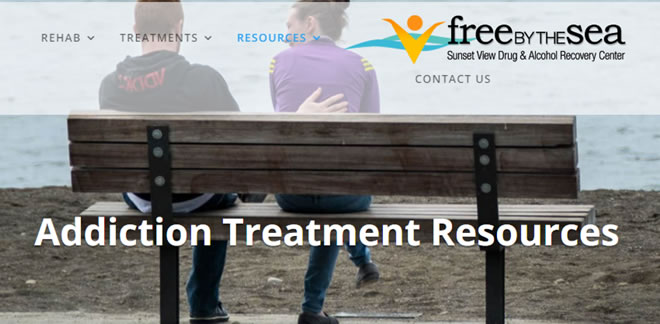
Sunset View Drug & Alcohol Recovery Center - 25517 Park Avenue, Ocean Park, WA 98640
Toll-Free: (844) 906-2300 Local: 360-665-4494
What is Substance Abuse?
Substance abuse, or commonly known as addiction, is caused by the development of a dependency on a substance that is meant for occasional or recreational use. It is classified as a mental disease that causes a change in the chemical balance of the brain due to repeated use of the substance. Use turns into abuse once the user is no longer able to control their need for the effects that a certain substance has on their body and brain.
When we think of addiction, we often think of hard drugs that are illegally sold to users on the black market like heroin, cocaine, and meth. What a lot of people fail to realize is that legal, common substances like alcohol and prescription pain medication can also cause addiction if not consumed properly.
As a result of this, it is predicted that 1 in 7 Americans will face addiction within their lifetime. Almost everyone within their lifetime will know someone with a substance use disorder or face addiction themselves. This is why our specialists at Free by the Sea want to provide resources and information about addiction to as many people as we can.
What Factors Can Cause Addiction?
Although some people are at a higher risk than others, addiction does not discriminate against anyone. There are certain factors, though, that can increase your chances of developing an addiction disorder. Here are the top 5 factors that influence whether or not you are more susceptible to addiction:The First Step to Receiving Treatment
Genetics: Our genes are what make us who we are, and a major factor that determines whether you will fall victim to addiction is having a family history of it. If you have one or more family members that have gone through or passed away from previous addiction disorders, you are more likely to develop one yourself.
Environmental Influences: The people we surround ourselves with and spend time with have a huge influence on our habits and personalities, as well. If you hang around friends and family members with drug and alcohol addictions, you may have a higher chance of developing a substance use disorder.
Drug of Choice and Method of Use: Certain types of substances are more addictive than others, so your drug of choice has a huge impact on addiction development. For example, you may be able to limit your consumption of alcohol to every once in a while, but you could become addicted to heroin the first time you try it. It all depends on the type of substance and the way you consume it.
Coexisting Disorders: Individuals with mental disorders like bipolar disorder, depression, and severe anxiety may use drugs and alcohol to alleviate some of the mental and physical pain they may be going through. Because of this, they can become heavily dependent on a substance and have a higher chance of developing a coexisting addiction disorder.
Age of First Usage: The age at which you first use a substance is also a key factor in addiction. If you begin using drugs and alcohol at a younger age, your brain development may be affected so severely that you don’t know how to live everyday life without the substance.
FOR MANY MORE DETAILS ON THIS SUBJECT SEE WEBSITE |

Detox and Rehab Center in Florida
Florida Center for Recovery (FCR) offers an all-inclusive onsite drug and alcohol detox with comprehensive therapeutic services. Our clients follow individualized detox protocols that are carefully monitored and tailored to address detox symptoms. Our medical team is onsite during the entire detox process, making clients as comfortable as possible. FCR’s inpatient drug and alcohol rehab programs utilize evidence-based and holistic practices to address the multidimensional aspects of the disease of addiction while teaching personal accountability in a safe, nurturing, real-life environment. Located on a tranquil retreat on 12 private acres, our inpatient rehab programs are offered in variable lengths of stay, which allows each client to anchor recovery behaviors needed for lasting change.
xxxxxxxxxxxxxxxxxxxxxx
Florida Center for Recovery (FCR), a leading addiction treatment center in the US, provides supervised medical detox and rehab programs to treat alcoholism, drug addiction and co-occurring mental health disorders such as PTSD, depression and anxiety. We are a 72-bed rehab facility accredited and certified by The Joint Commission, which sets the standard for delivery of safe and effective care of the highest quality and value for our clients. As a licensed detox and addiction rehab facility in Florida,FCR provides treatment for those struggling with the disease of addiction throughout the nation. At any given time we have clients from New York, New Jersey, Pennsylvania, Michigan and Ohio, to name a few, who have traveled to our Fort Pierce rehab facility for the complete and the professional care they deserve.
Our Florida Drug and Alcohol Rehab offers inpatient addiction treatment programs for both men and women 18 years of age and older. Our specialized addiction treatment programs include: trauma therapy (Rapid Resolution Therapy®), pregnant women rehab program, military/first responders rehab program and chronic relapse program.
FCR rehab center’s history started on Long Island in 1995, where our founder, Jack Hamilton, opened his first facility. In 2002, broadening his vision of bringing comprehensive yet affordable treatment to heal and nurture individuals struggling with addiction, he established FCR on the beautiful Treasure Coast of Florida.
FOR MANY MORE DETAILS ON THIS SUBJECT SEE WEBSITE |

Surprising Link Between Sleep Deprivation Psychosis And Mental Illness
The term sleep deprivation means getting less than the necessary amount of sleep. For adults, that ranges from 7 to 9 hours per night, and children and teens need even more than adults. A study conducted by sleep researchers at the Sleep and Circadian Neuroscience Institute and the University of Oxford in the U.K. discovered that “sleep disruption is a driving factor in the occurrence of:
Paranoia
Hallucinations
Depression
Other mental health problems.
Insomnia is usually thought of as a symptom of depression, but now it might be a cause of it.
MONTARE AT THE COUNTRY CLUB - 3341 Country Club Dr, Los Angeles, CA 90019
MONTARE AT THE HILLS - 4156 Sunswept Dr, Studio City, CA 91604
MONTARE AT THE VALLEY - 15367 Valley Vista Blvd, Sherman Oaks, CA 91403
MONTARE AT THE LAKE - 17801 Twilight Ln, Encino, CA 91316
MONTARE AT THE CANYON - 2900 Kanan Dume Rd Malibu, CA 90265
FOR MANY MORE DETAILS ON THIS SUBJECT SEE WEBSITE
|
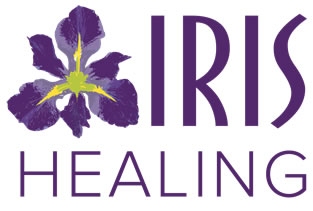
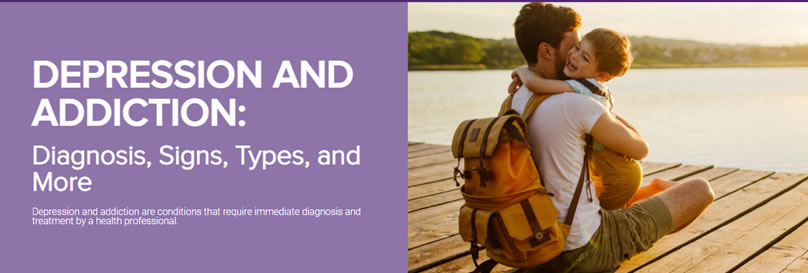

PLEASE SEE WEBSITE FOR COMPLETE DETAILS
|

Harmony Place Resources
LA Drug and Alcohol Addiction Rehab Resources
At Harmony Place, we feel it’s our duty to educate the general public about addiction and issues that are currently affecting American society. More than that, we want to educate the public on the state of drug and alcohol addiction in Los Angeles and how residents can get help from the right addiction treatment facility. Unfortunately, many residents of Los Angeles (LA) suffer from an alcohol or drug use disorder.
Research indicates that Los Angeles, in combination with the surrounding metropolitan areas, has a higher rate of illicit drug use than the nation overall (not including prescription medications). This affects the state of California as a whole resulting in increased incarceration rates and an increased economic burden. Residents of Los Angeles struggling with addiction should be aware of treatment options and how to choose the best ones for them.
PLEASE VIEW WEBSITE FOR MORE INFORMATION
|

Treatment Methods At Kingsway Recovery
At Kingsway Recovery’s substance abuse mental health treatment center, we provide a broad range of clinically intensive treatment services in a safe, structured, and caring environment. All of our treatment services include conflict resolution and occupational enhancement. Additional counseling and treatment services are all offered by our passionate team of experts.
Address 124 Bridgeton Pike Mullica Hill, NJ 08062 - Phone Number (856)-230-7130
Email Address info@kingswayrecovery.com
PLEASE VIEW ALL DETAILS ON THE WEBSITE |

Opioid abuse, addiction, and overdose are public health concerns in the Garden State. This is because more and more people in New Jersey are struggling with addiction. In fact, according to the Department of Health, 80,000 people in New Jersey entered into rehab for substance use disorders in 2017 alone.
Not all struggling addicts have the wherewithal to enter addiction treatment though. Many people that struggle with addiction are so far deep that they allow themselves to overdose on substances. For example, due to the current opioid epidemic, over 3,000 New Jersey citizens overdosed on opioids in 2018 alone. Some people that overdose on substances even end up dying.
Luckily, in New Jersey, there are a plentiful amount of detox and addiction treatment centers and resources that those struggling with addiction in New Jersey and its surrounding states can easily turn to instead of succumbing to the disease that is addiction. Whatever addiction treatment program or service that you’re looking for, you can find it in New Jersey.
Phases of Care for a Successful Addiction Recovery
Even if you choose to attend addiction treatment at a high-quality rehab center in New Jersey such as North Jersey Recovery Center, the work doesn’t end there. To maintain sobriety, one must be proactive while in addiction recovery. Part of that means using different addiction treatment resources before, during, and after attending rehab.
FOR MANY MORE DETAILS ON THIS SUBJECT SEE WEBSITE
|
Resource Directory
Locate Drug and Alcohol Centers by State
Addiction Treatment Services provides updated and accurate information on substance abuse and recovery resources around the country. Our directory of nationwide addiction treatment resources includes organizations, listings of state agencies, and insurance coverage information that may be of assistance to those seeking drug or alcohol rehab treatment.
Explore our available resources to learn more about substance abuse and addiction recovery options in your state, such as:
The types of treatment available
What rehab treatments could be covered by insurance
Advice and suggestions for staging a successful intervention
When you give us a call, we’ll help you find the perfect drug or alcohol rehab facility for you or your loved one. There are many types of treatment available, such as inpatient rehab and outpatient rehab, but most treatment plans can be individualized within those categories. We can help you determine whether your insurance could help you pay for treatment, help you prepare to stage an intervention for a suffering family member or friend and help you find a rehab center near you that’s in-network and has the services you’re looking for.
Choosing to seek addiction treatment is the first step towards sobriety and we’d like to help you continue along that path. Being addicted to drugs and/or alcohol can completely take over your life. We’re here to help you regain control.
Contact one of our addiction recovery consultants today for a complimentary insurance review. We’ll go over your insurance coverage with you, help you decide what types of addiction treatment will best suit your situation, and get you or your loved one into a treatment program that works for you.
If you’re ready to get started, check out the resources below and give us a call. We’re happy to help you start your journey towards lifelong sobriety.
Drug & Alcohol Rehab Centers Near Me (Resources by State). Select Your state:
Get Substance Abuse Help in Your Area Today!
PLEASE VIEW ALL STATES ON THE WEBSITE
|

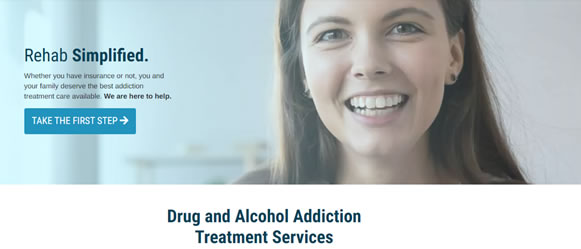
Helping you find personalized addiction treatment
Our mission is to assist individuals with finding the best information, resources, and tools to overcome drug and alcohol addiction. A life free from the grips of substance abuse is possible, and we are here to help.
PLEASE VIEW WEBSITE FOR MORE INFORMATION
|
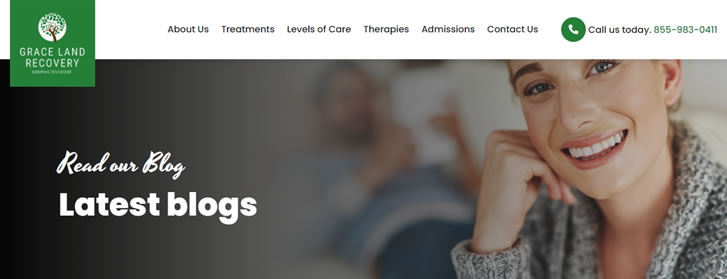
Grace Land Recovery Center is a dual diagnosis treatment center. Our staff is passionate about helping people achieve sobriety by treating the mind, body, and soul. It’s because of this passion that we work so hard to provide our patients with a wide array of addiction treatment and therapy programs and services. In further efforts to help others achieve sobriety, we make sure to educate anyone that we can on addiction.
Here on our blog, you can find reliable information and interesting articles on addiction and co-occurring disorders. You’ll also find information that can help you maintain your sobriety once you’ve achieved it. So, whether you’re looking for an informative article on addiction to answer any questions that you may have or you’re looking for inspiration to help you achieve or maintain sobriety, you can find what you need here on Grace Land Recovery Center’s blog!
PLEASE VIEW WEBSITE FOR MORE INFORMATION
|

Explore our available resources to learn more about substance abuse and addiction recovery options in your state, such as:
The types of treatment available
What rehab treatments could be covered by insurance
Advice and suggestions for staging a successful intervention
When you give us a call, we’ll help you find the perfect drug or alcohol rehab facility for you or your loved one. There are many types of treatment available, such as inpatient rehab and outpatient rehab, but most treatment plans can be individualized within those categories. We can help you determine whether your insurance could help you pay for treatment, help you prepare to stage an intervention for a suffering family member or friend and help you find a rehab center near you that’s in-network and has the services you’re looking for.
Choosing to seek addiction treatment is the first step towards sobriety and we’d like to help you continue along that path. Being addicted to drugs and/or alcohol can completely take over your life. We’re here to help you regain control.
Contact one of our addiction recovery consultants today for a complimentary insurance review. We’ll go over your insurance coverage with you, help you decide what types of addiction treatment will best suit your situation, and get you or your loved one into a treatment program that works for you.
If you’re ready to get started, check out the resources below and give us a call. We’re happy to help you start your journey towards lifelong sobriety.
PLEASE VIEW DETAILS ON THE WEBSITE |
 
2528 W Palmetto St Florence, SC 29501
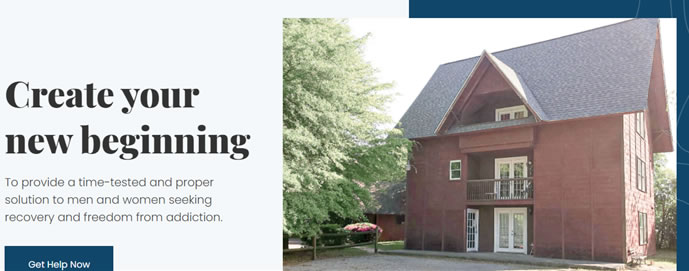
If you’re suffering from addiction,
The Owl’s Nest is here to help!
The Owl’s Nest is an outpatient treatment program with transitional housing for men and women suffering from addiction issues. Our programs are designed to create a structured environment where all of our residents can establish a solid foundation of 12 Step Recovery, supported by other evidence-based approaches that include CBT, DBT and mindfulness.
Many of our staff at The Owl’s Nest have experienced addiction in their own lives. We know what it feels like to battle and overcome alcoholism and addiction. That unique perspective allows us to reach those who seek to do the same.
We offer Partial Hospitalization, Intensive Outpatient and Outpatient Levels of Care delivered by passionate, experienced and qualified professionals. Clients have the ability to move through this phased approach as they progress in their recovery journey. We understand that many of our clients need a safe, loving environment that offers extended care options to ensure the best possible start to their new life or abstinence, wellbeing and health. We therefore offer transitional housing Our friendly Admissions Team welcome the opportunity to tell you more about our facility, tour our 10-acre grounds and meet our staff
We are also committed to making recovery accessible and affordable for all of those who seek it. This is why The Owl’s Nest programs accept health insurance and also affordable and highly competitive private pay options.
PLEASE VIEW WEBSITE FOR MORE INFORMATION |
North Jersey Recovery Center 22-08 NJ-208 Suite 2 - Fair Lawn, NJ 07410 - (877) 786-0572

Opioid abuse, addiction, and overdose are public health concerns in the Garden State. This is because more and more people in New Jersey are struggling with addiction. In fact, according to the Department of Health, 80,000 people in New Jersey entered into rehab for substance use disorders in 2017 alone.
Not all struggling addicts have the wherewithal to enter addiction treatment though. Many people that struggle with addiction are so far deep that they allow themselves to overdose on substances. For example, due to the current opioid epidemic, over 3,000 New Jersey citizens overdosed on opioids in 2018 alone. Some people that overdose on substances even end up dying.
Luckily, in New Jersey, there are a plentiful amount of detox and addiction treatment centers and resources that those struggling with addiction in New Jersey and its surrounding states can easily turn to instead of succumbing to the disease that is addiction. Whatever addiction treatment program or service that you’re looking for, you can find it in New Jersey.
PLEASE VIEW WEBSITE FOR MORE INFORMATION |

Questions about treatment?
Get 24/7 help. Call now for:
– Access to top treatment centers
– Caring, supportive assistance
– Financial assistance options
SOME OF THE CONTENT AND MUCH MORE ON WEBSITE
The Importance of Honesty In Recovery
Medication to Curb Alcohol Cravings
Is Baclofen Addictive? What Is It Used For?
What is Clonidine, and Can It Be Used for Opiate Withdrawal?
How Long Does Alcohol Stay in Your System?
10 Effects of Substance Abuse on Family Members
Withdrawal Symptoms to Expect from Xanax
Common Withdrawal Symptoms
10 Myths About Alcoholism
What Percent of Alcoholics Relapse?
Alcohol Effects on Kidneys
PLEASE VIEW WEBSITE FOR MORE INFORMATION
|

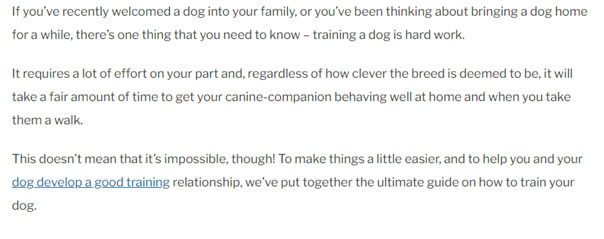
PLEASE VIEW WEBSITE FOR MORE INFORMATION
|
Sober Living: Temporary and Permanent Housing Options

Finding a Home after Rehab: A Guide to Fostering an Environment for Recovery
Having a stable living environment after rehabilitation may help reduce the chance of relapse. Creating that environment extends far beyond just renting or buying real estate though. You’ll want to think about finding a job, establishing new and healthy relationships, and maintaining your sobriety.
Inpatient vs. Outpatient Rehabilitation
Treatment programs typically fall into two broad categories: inpatient and outpatient rehabilitation (or rehab). On one hand, inpatient rehab refers to the services you receive during a stay in a hospital or other recovery facility; it includes an intensive, residential treatment program.
Outpatient rehabilitation, on the other hand, refers to the services you receive when visiting a local treatment center, but continue to live at home; it can be thought of as a part-time program and does not usually include overnight stays.
The differences between inpatient and outpatient care are a combination of personal attention, access to resources, and community. While inpatient programs require a 24/7 commitment, the more controlled environment may aid patients who need a more structured approach to combat a substance use disorder. Outpatient programs offer more freedom and flexibility. For instance, outpatient programs often allow users to go to work or school during the day; users of inpatient programs typically transition to outpatient care after completing an initial term.
Inpatient rehab is inevitably going to be more costly than outpatient due to the cost of housing, food, and other living expenses. The 2010 Affordable Care Act, however, can assist those struggling to afford treatment services. Specific benefits may vary depending on your state and the health plan you choose.
Table of Contents
FINDING A HOME AFTER REHAB
INPATIENT VS. OUTPATIENT REHABILITATION
WHAT HAPPENS AFTER LEAVING REHAB?
- MAKING A HOUSING PLAN
- EMPLOYMENT AFTER REHAB
TEMPORARY HOUSING
- HALFWAY HOUSES AND SOBER LIVING HOMES
- RETURNING HOME OR LIVING WITH FAMILY
FINDING A PERMANENT RESIDENCE
- RENTING
- BUYING A HOME
MAINTAINING AND REBUILDING
HELPLINES AND RESOURCES
- FINANCIAL RESOURCES
- FOOD, HOUSING, AND OTHER LIVING RESOURCES
FOR MANY MORE DETAILS ON THIS SUBJECT SEE WEBSITE
|
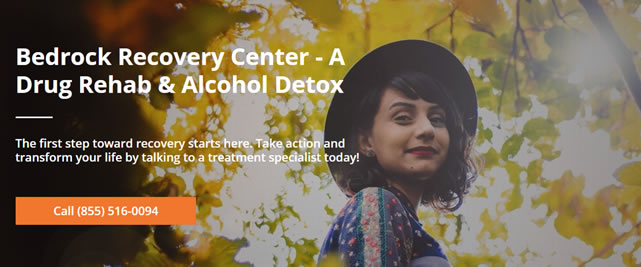
Welcome to Bedrock Recovery Center
Bedrock Recovery Center, located in Canton Massachusetts, is a state of the art Drug Rehab & Alcohol Detox facility. Designed to treat substance use disorder, we offer detoxification services in an inpatient residential treatment setting. At Bedrock Recovery Center, our mission is to provide trauma informed, evidenced based addiction treatment in a culturally humble and gender responsive environment.
How we can help you
Bedrock Recovery Center is a Detox and Inpatient Residential recovery facility committed to helping those who struggle with Drug & Alcohol Addiction and Co-Occurring Disorders. We work hard to help each individual safely Detox from the substance they are struggling with.
After detox, our clients receive an individually tailored treatment plan that will give them the tools to enter a life that is purposeful, peaceful and fulfilling. We value the importance of community in recovery and create a sustainable process to help ensure physical health and emotional stability.
PLEASE VIEW MUCH MORE ON THE WEBSITE
|

Treatment enquiries- 0800 140 4690
International- +44 345 222 3508
United Kingdom
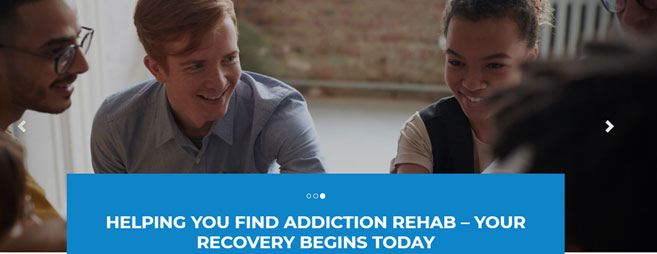
HELPING YOU FIND ADDICTION REHAB – YOUR RECOVERY BEGINS TODAY
Rehab 4 Addiction was founded to assist those affected by substance misuse and their loved ones. We offer a range of services, and help signpost you to the most effective treatments. This includes alcohol rehab, drug rehab, detox services, intervention, aftercare and outpatient counselling. Our helpline advisors are committed to helping you in your quest to locate effective treatments for addiction.
PLEASE VIEW WEBSITE FOR MUCH MORE INFORMATION
|
How To Find A Hobby As An Adult
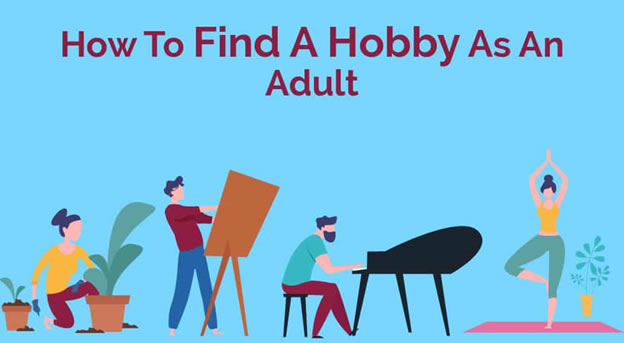
Everyone needs something to give them a little more enjoyment in their day. Whether that’s an exercise activity, something creative, or something like gaming.
Of course, many of us establish our hobbies as children. Perhaps you joined a club at school for soccer and the interest has stayed with you throughout your life.
Maybe you joined the scouts and you have an interest in bird watching.
Do you know what people usually don’t talk about though?
How difficult it is to develop a hobby as an adult. There aren’t as many opportunities to find new hobbies as an adult – at least not ones that are obvious.
We often need to look a little harder to find new hobbies.
PLEASE VIEW WEBSITE FOR MUCH MORE INFORMATION |
Riviera Beach Treatment Centers in South Florida

Addiction is a disease that doesn’t discriminate; anyone can become addicted. No matter what age, religion, ethnicity, or race you are, addiction can cause many life-threatening issues and problems. Addiction continues to impact people across the nation, even in South Florida. However, with the help of treatment centers in South Florida, you or a loved one can overcome addiction in the end.
South Florida is where some of the best West Palm Beach rehab centers are located. If you or a loved one is living in the South Florida area and is struggling with addiction, now is the time to get help. There are many treatment centers in South Florida such as Intrepid Detox that can help you start your journey towards a better life. Getting help from a South Florida rehab center you can trust is essential to breaking free of addiction.
FOR MANY MORE DETAILS ON THIS SUBJECT SEE WEBSITE |
Questions about treatment
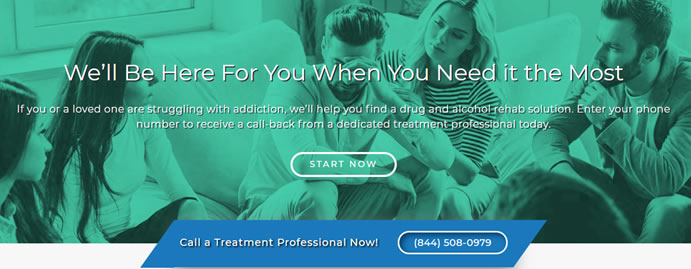
Is your loved one struggling with addiction?
The first step to recovery is asking for help. Unfortunately, many people with drug or alcohol addiction are in denial that they have a problem in the first place. It usually takes the concern and efforts of family and friends to encourage people to go to rehab.
That’s where we come in.
Whether you need help staging an intervention, finding family support services, or locating a rehab center near you, our dedicated addiction specialists are standing by to take your call. Reach out to us today to find the support you need.
Table of Content
10 Myths About Alcoholism
What Percent of Alcoholics Relapse?
Alcohol Effects on Kidneys
Is Marijuana a Stimulant or a Depressant?
Opiate Withdrawal Timeline
Can Lithium be Used for Alcohol Withdrawal?
What Are The Signs of Cocaine Abuse?
What Are Co-Occurring Disorders and How Does Dual Diagnosis Treatment Work?
What is Outpatient Drug Rehab?
How Long Does Alcohol Stay in Your System?
Much More on Website............
FOR MANY MORE DETAILS ON THIS SUBJECT SEE WEBSITE
|
The Best Drug Rehabs in Florida: What Resources Are Available?

The Best Drug Rehabs in Florida: What Resources Are Available?
Drug problems are increasingly common in a world where illicit substances have become widely available. Thankfully, the increased focus on drug problems in recent years has led to the introduction of a wide range of treatment methods that have proven to be effective. Additionally, many treatment centers in Florida have opened in recent years. Read on to learn how you can pick the best drug rehabs in Florida that can effectively resolve the addiction challenges you are facing.
What Does Addiction Really Mean?
Addiction can be defined as a compulsive urge to use a habit-forming substance. Some addictions create physiological dependence that can make getting clean especially difficult. Physiological dependence often happens when users take relatively large doses of a substance on a consistent basis. In other cases, addictions can be the result of a psychological condition or an impulse that is difficult to control.
One of the most important characteristics of an addictive substance is a tolerance that builds over time. This tolerance causes users of the substance to require progressively larger doses to get the same effects.
Drug addictions are also characterized by specific withdrawal systems that are experienced after the initial feelings the substance causes come down. These withdrawal symptoms can be physiologically severe when particularly strong substances are used. Withdrawals also worsen when larger doses of a substance are taken.
ADDITIONAL CONTENT
Addiction vs. Dependence
Importance of Seeking Professional Addiction Help
Advantages of Pursuing Treatment in Florida
Treatment Options Available
What Forms of Aftercare Therapy Are Available at Drug Treatment Centers in Florida?
Should Programs Be Gender-Specific or Age-Specific?
Why Is Contacting a Professional Center an Important First Step?
FOR MANY MORE DETAILS ON THIS SUBJECT SEE WEBSITE

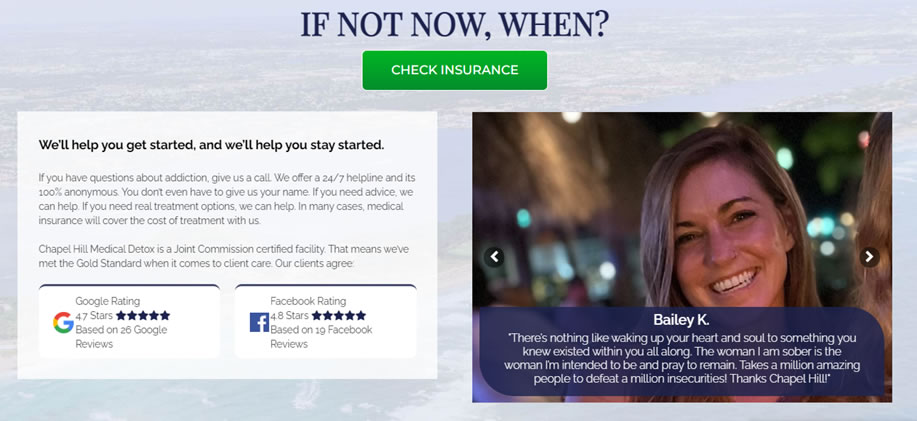
MORE DETAILS ON THIS SUBJECT SEE WEBSITE
|
Addiction and Homelessness
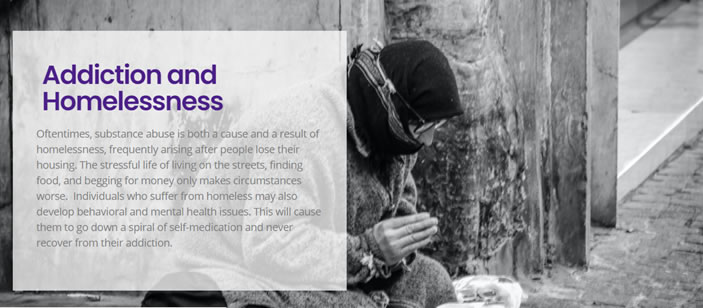
Homelessness is a significant issue in the United States and may affect more than 2 million people per year.2 In 2019, 17 out of every 10,000 people, which totals 567,715 individuals, in the United
States experienced homelessness in a single night. Homelessness increased by 3% in 2019 compared to the previous year. However, homelessness has decreased by 12% overall since 2007. Unfortunately, the COVID-19 pandemic could completely alter this downward trajectory for homelessness prevalence.1
Most statistics regarding substance abuse show that it is much more common among the homeless population than among the general population. An estimated 257,000 homeless individuals have a severe mental illness or experience chronic substance abuse. In 2003, the Substance Abuse and Mental Health Services Administration estimated that 38% of homeless people were dependent on alcohol, and 26% abused other drugs. 3
In 2018, the National Household Survey on Drug Use and Health found that only 10.1% of all people in the United States over the age of 12 said they used drugs in the past month. The Substance Abuse and Mental Health Services Administration found that only 8.4% of U.S. adults had a substance abuse issue in the past month.3
Table of Contents
Prevalence
Understanding Homelessness
Substance Abuse & Homelessness
Alcoholism & Homelessness
Mental Health & Homelessness
Treating the Homeless Population
Sources
Lynda Randle Ministries
FOR MORE ON ABOVE CONTENT SEE WEBSITE
|
5 Tips for Managing Money While You're Recovering From Addiction

I spent the majority of my life wrestling with alcohol and drug addiction. It took a long time for me to realize I even had a problem. Rehab, support groups, Alcoholics Anonymous (AA) and Narcotics Anonymous (NA) meetings showed me ways to deal with spiritual, emotional and even physical aspects of recovery. Yet, what I wasn’t prepared for was the financial side of things.
During the peak of my addiction, money was nothing but a means to an end, the end being bigger and better highs. When I got into recovery the first time, money was a pretty big instrument to my relapse. I had a new job, suddenly had more money in my possession than I ever had before and the stresses of my “9 to 5” coupled with my well-satisfied wallet sent me straight down the dark path once more.
FOR MANY MORE DETAILS ON THIS SUBJECT SEE WEBSITE
|
Resources for Parents
Drug and alcohol addiction are more common with adolescents than most of us would like to believe. Many parents also find that they’re unprepared when they learn that their son or daughter is using and has developed a substance use disorder. If you’re a parent who has an adolescent child with a drug addiction, there’s plenty of help available. However, it’s important to know how to approach the subject with teens.
Most Common Types of Drug and Alcohol Abuse With Teenagers
While vaping is on the rise, the good news is that fewer 8th to 12th graders are drinking alcohol. In a 2019 survey, approximately 29.3% of 12th graders reported using alcohol in the last month. This percentage is actually down from 2014; that year, researchers gathered a rate of 37.4% using alcohol within the previous month. Binge drinking was also lower in 2019. Nevertheless, the rate of 14.4% of 12th graders reporting binge drinking may still seem high.
Additionally, the same survey found that opioid use, which includes drugs like such as Vicodin and Oxycontin, declined over the previous five years. The use of drugs like cocaine, methamphetamines, and over-the-counter cold medicine has remained steady. Unfortunately, the perceived danger of using cocaine has fallen since 2013, with only 48% of adolescent respondents perceiving the use of cocaine just once or twice as dangerous.
The age range of 12-17 is generally considered a significant risk period for substance use disorder. Researchers believe that people who use drugs or alcohol at a young age are more likely to develop an addiction later on in life.
Ideally, you’ll take steps to prevent your teen from becoming involved with drugs in the first place. If you do find out that your adolescent has started using drugs and alcohol, you should address the situation in a way that does not make them feel more alienated. While it’s a difficult line to walk, you must remain engaged and supportive without allowing the substance use to continue.
FOR MANY MORE DETAILS ON THIS SUBJECT SEE WEBSITE
|
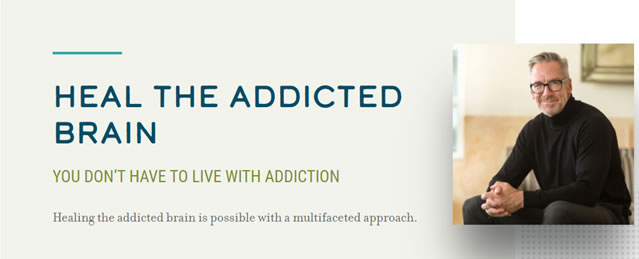
ARE YOU READY FOR YOUR RECOVERY JOURNEY?
When you struggle with an addiction you live in a constant state of denial.1 People in your life may be frustrated and confused about your actions. Some of these people may believe addiction is a choice; that you could simply choose to stop. This type of misinformation is a deterrent to addiction treatment and contributes to the low self-esteem and self-loathing that medical professionals see too often at the start of recovery.2
ACKNOWLEDGING YOU NEED HELP
The first step on your recovery journey is your willingness to begin treatment.3 Many times, this requires a traumatic event to shock you into accepting there is a problem. The shocking event may be an auto accident, arrest, divorce, a nearly lethal overdose, or many other traumas. Ideally, you will acknowledge treatment is needed before experiencing any of these traumas.
BEGINNING RECOVERY
Once you have made the brave step to begin recovery, you must choose the right addiction treatment program. Do you need a residential or outpatient environment? Do you prefer a holistic or more traditional approach? What is important to you?
This article will explore how an advanced treatment program may treat your addiction and help you achieve sobriety. You do not have to resign yourself to being an “addict” for the rest of your life to recover. This article will also explore this revolutionary paradigm. First, let’s learn about your brain chemistry and addiction.
MORE DETAILS ON THIS SUBJECT SEE WEBSITE
|
6 Signs of Self Medicating with Drugs or Alcohol

Substance abuse and suicide are often connected, as some people attempt to self-medicate deal with stressful and uncomfortable situations. Turning to self-medication could potentially lead to suicide if underlying issues are left untreated.
Celebrating National Recovery Month

September is National Recovery Month! A time to reflect and focus on addiction recovery as well as the journey those in recovery have undertaken to get to where they are today. An estimated 22 million Americans are currently in recovery.
What Happens When You Mix Gabapentin and Alcohol? Side Effects and Dangers

Substance abuse and suicide are often connected, as some people attempt to self-medicate deal with stressful and uncomfortable situations. Turning to self-medication could potentially lead to suicide if underlying issues are left untreated.
Questions & Answers
Some Popular Questions from our Q&A Resources
What Happens When You Mix Gabapentin and Alcohol? Side Effects and Dangers
Why is it Important to Have Patience with Myself?
How Do I Know When I’ve Hit Rock Bottom?
Why Do We Self-Blame?
How Can We Teach Our Children to Express Their Emotions?
How Can I Become My Own Best Friend?
How Can Dissociation Impact Our Recovery?
How Does Dissociation Relate to Our Addictions?
FOR MANY MORE DETAILS ON THIS SUBJECT SEE WEBSITE |
Substance Use Continues to Rise During Covid-19 Pandemic

Covid-19 has created many challenges and conditions that can contribute to addiction. It has caused stress, uncertainty, financial strain, joblessness, isolation, and other conditions that could trigger problematic use of addictive substances. People, especially those who are prone to addiction, may turn to substances as a way to cope with or escape from these current challenges.
What we are seeing during the pandemic is a rise in alcohol and drug use and abuse. Some people may have started substance use while others have increased their previous use. Let’s take a look at the statistics, the impact of social isolation, how to avoid substance abuse and treatment options for those who are experiencing it.
FOR MANY MORE DETAILS ON THIS SUBJECT SEE WEBSITE
|
HERE ARE SOME GREAT RESOURCES TO HELP YOU
Growing Up With a Parent or Caregiver Struggling with Addiction
Emotional Reasons Why We Enable Our Loved Ones’ Addictions
How Our Loved Ones’ Addictions Affect Our Mental and Emotional Health
The Habits that Form Addictions
Finding the Valuable Lessons Within Our Emotions
Understanding Behavioral Addictions
Remembering the Purpose Behind Our Goals
Dealing with Misunderstanding
How Drugs Worsen Our Depression
Thought Addictions |
Recovery
Living with the Violence of Addiction

Many of us living with addiction also find ourselves in unhealthy relationships that are filled with toxicity, hostility and even violence and abuse. Many of us experienced relationships like these in our families while we were growing up. We witnessed domestic abuse within our homes, that we often were victims of as well. We tend to choose the relationships that mirror what we are most familiar with and the most used to, what makes us most comfortable, essentially our emotional comfort zone. The patterns we perpetuate come from what we know to be reality. When we get accustomed to violence, we are more likely to attract partners who continue these patterns with us. They are often addicts themselves, and we fall into cycles of enabling each other, lying and deceiving one another, and abusing each other. The violence we live with that is compounded by addiction is filled with unique challenges.
When we are living with addiction in our lives, we tend to have turbulent love stories that are filled with issues, problems, and danger. We are reckless, risky and throw caution to the wind. Our relationships are filled with ups and downs, drama and high emotions. We’re constantly fighting, breaking up, making up and then repeating the cycle. With abusive relationships, there is a cycle of violence that includes the high of the honeymoon phase as the first phase. We’re high on love, and high on the substances we’re addicted to. We feel good about life, sometimes we feel like we’re on top of the world. When we haven’t yet felt the low that inevitably comes with addiction, we still think we’re invincible.
After the honeymoon phase, all of our old habits and patterns that are still unhealed will return. Everything we haven’t healed from will present itself as a lesson, a spiritual test. We usually fall back into our old habits of self-destructiveness, and with abusive relationships, there is a lot of anger, contention, bitterness and resentment that we haven’t healed from yet. The violence we experienced as children, within our families, and within past relationships will again resurface, and our patterns will re-emerge. We haven’t healed from the pain within us. We haven’t learned healthy coping skills to handle the difficult emotions that will naturally arise for us.
Understanding the violence of addiction often means working to unearth all the past violence in our lives that we haven’t healed from, so that we can move forward in peace.
Because we’ve lived with addiction in our own lives, we know firsthand all of the other life complications that come along with it. We’re here to give you the support you need to help you heal from all of it. Call Riverside Recovery at (800) 871-5440 for more information.
FOR MANY MORE DETAILS ON THIS SUBJECT SEE WEBSITE
|
Drug and Alcohol Addiction Treatment
Designed for long-term healing
Every level of care all under one roof
Addiction treatment isn’t one-size-fits-all, so at Riverside Recovery, we make sure each client gets exactly the kind of support and guidance they need at every stage of recovery. We work one-on-one with every client to create an individualized treatment plan, not only admitting them to the most appropriate level of care but also customizing their schedule and their therapies with specialized programs and approaches. We are proud to offer multiple levels of care on-site and to have several tailored treatment tracks geared toward clients with specific backgrounds and lifestyles.
Levels of Care
From detox to residential treatment to outpatient care and beyond, Riverside Recovery offers every level of care, all under one roof. Experience seamless care transitions and enjoy our beautiful facility on the banks of the Hillsborough River — we’ll meet you where you are on your journey of recovery.
Detox Program
Residential Treatment
Day/Night Program
Intensive Outpatient Program
FOR MANY MORE DETAILS ON THIS AND OTHER SUBJECTS SEE WEBSITE
|
7 Step Process To Regaining Trust In Recovery

Drug addicts lose things. It’s just what happens.
They lose money, they lose weight, they lose jobs, they lose freedom. From time to time, they will even lose their drugs. We all remember tearing our rooms and our cars apart for that little baggie that was just on our lap. The struggle is real…
At the end of the road, almost every drug addict will lose trust. Losing trust is possibly the most painful loss of all. It’s agonizing, knowing that your family hides their valuables before you come over, or hearing the tone in your mothers voice when you tell her you will do something for her and she just doesn’t believe you. It fills you with guilt and shame.
Trust is never taken, it is always earned. It’s one of the few Universal truths. It will always be this way, and because we are unable to take or steal trust, it makes it even harder to regain. There are no short cuts when rebuilding relationships.
I have spent a long time putting this together in my head. Together, we came up with a 7 step plan in rebuilding trust. If you want to earn someones trust back, and you are willing to earn it, then follow us.
Step One – First You Must Focus On Yourself
tep Two – Avoid Victim Mentality
Step Three – Build A Routine And Stick To It
Step Four – Just Do The Right Thing
Step Five – Don’t Ask For Praise Or Expect An Award
Step Six – Be Impeccable With Your Word
Step Seven – Be Consistent
FOR MANY MORE DETAILS ON THIS SUBJECT SEE WEBSITE
|
7 Ways Recovering Addicts Can Give Back to the Community
Addiction has a way of making you feel helpless. Substance abuse disorders rob people of satisfaction in their lives, replacing the potential of personal fulfillment with guilt and shame in equal measure. When the brain is re-shaped to respond primarily to drugs, other responsibilities fall by the wayside, and relationships falter. Effective treatment focuses on teaching people to re-engage with the world in meaningful ways as a means of staying sober for good, and volunteering during addiction recovery is one of the best ways to do that.
Article Contents
Neurology and Addiction
Reasons to Volunteer During Recovery
Ways to Give Back by Volunteering
Giving Back and Getting More
FOR MANY MORE DETAILS ON THIS SUBJECT SEE WEBSITE
|
ACCOUNTABILITY IN RECOVERY: IMPORTANCE OF REMAINING ACCOUNTABLE AND HELPING OTHERS TO DO THE SAME
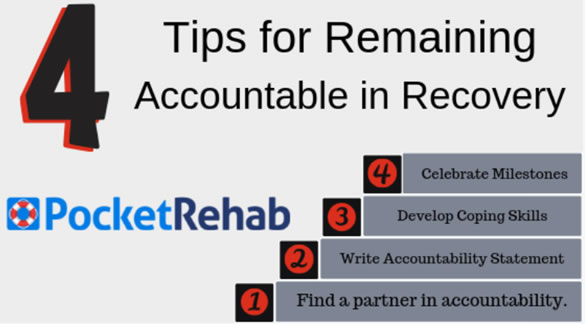
During an individual’s time in treatment, accountability will play a key role in the healing and recovery process. Once the individual leaves treatment, accountability continues to play a role in whether or not they remain sober. But who will hold you accountable day-to-day?
What is Personal Accountability?
Accountability is all about sticking to your plan and recognizing the rules of your plan in recovery. However, it is also about taking responsibility for your actions and behaviors – every time, not just when you want to.
Remaining personally accountable in recovery is one of the greatest challenges you will face because accountability is often the first thing to be let go when you are struggling with addiction. You begin to hold yourself less accountable for your actions, and your family or friends may also hold you less accountable—thus you slip into the pattern of behaviors in which you do not take responsibility for the things that you do.
How You May Have Avoided Accountability in the Past
Using drugs or alcohol may be done as an excuse for other behaviors. Maybe you used drugs to make yourself feel better or to not have to deal with different scenarios in your mind. Often those who are in the early stages of addiction or who may be new to recovery are avoiding accountability as follows:
Using drugs that they are not in treatment for so that they can make up a different excuse as to why they are using a substance.
Failure to accept responsibility for actions while under the influence.
Denying any previous substance abuse when it is brought up.
Failure to accept the severity of the drug problem despite the fact that it truly is bad.
Blaming others when relapse occurs.
Avoiding important treatment steps that are known to facilitate recovery.
Acting out when recovery doesn’t go YOUR way.
FOR MANY MORE DETAILS ON THIS SUBJECT SEE WEBSITE
|

Ways to Stay Positive and Happy in Recovery
Happiness is a goal for most people. There are dozens of books on every shelf about how to achieve lasting happiness. Those in recovery from addiction are no exception. In fact, it is believed that those who drink alcohol and use drugs are in search of continual, ongoing happiness and drink to achieve this state.
Emotions
No one wants to feel sad, depressed or angry. However, it is necessary to feel the full spectrum of emotions in order to feel joy or happiness. Addicts usually drink or take drugs to stave off emotional upset. When a feeling comes up that they do not like, they drink or use drugs to mask the emotion.
Newcomers to recovery have a difficult time identifying their emotions. Most treatment centers come equipped with charts that help new members identify anger, rage, sadness, depression, happiness, etc. For counselors and therapists, the process of getting newcomers to determine their emotions can be challenging. This emotional vagueness may also occur in recovering patients’ family members as well as specific cultures, where emotions are not recognized as being pertinent to life.
Learning to name emotions is an important beginning in early recovery. When we learn to identify our emotions before they escalate into dangerous territory, we can begin to regulate our moods. This way we can become more aware of what is going on within us, which is crucial to long-term abstinence.
How do I feel?
Once we identify an emotion, no matter what it is, we are checking in to ourselves. Most newly recovering addicts have a great deal of anger to work through. They have pushed their emotions down during their drinking and drug use, making them similar to a pressure cooker ready to burst when the emotions begin to surface. Knowing that anger is coming up within us can help us work through what we’re feeling before going off the deep end and “acting out” the anger. This is called emotional regulation, which is a mature and grown-up way of dealing with our feelings.
Those who have been abusing nervous system depressants such as alcohol, heroin or pain medication tend to have depressed mind states. While they may not require medication, it is important to know that the low emotional state is there. People with depression are living a life of ongoing sadness and can become suicidal or return to drinking and using in order to relieve their depression. Not knowing that the depression is actually caused by their drinking and drug use, they will spiral down into a deeper state of hopelessness. The same is true for some stimulant abusers who are experiencing the downside of their stimulant drug withdrawals.
Identifying all emotions is a good way to begin to enjoy life in recovery. Once we process emotions that are new and previously not dealt with, we can move through those emotions and into new territory.
Finding the Goodness in Life
At first, newcomers may experience what is termed a “pink cloud.” This is a state of bliss that some will get just because they are not drinking and drugging all the time. They begin to feel good about their new behavior and are proud to be off the drugs and alcohol. While little has changed in their behaviors and lives, they still feel optimistic and good about their ability to remain abstinent.
Building on good feelings about recovery allows us to stay positive and happy, even when faced with situations that usually leads to despair and hopelessness. It is good to also start identifying when you are feeling positive, upbeat and happy about your life. Then, when these moments happen, you can identify what is actually creating the feelings.
Some people will experience new and improved relationships with family members which then brings contentment for the recovering addict. Others may have improved situations in their home, work or social environments. Some will feel better about attending support groups or 12-step recovery meetings. At the same time, new friends found in these settings can also feed into increased feelings of well-being.
Throughout your recovery, it is important to reinforce these behaviors and work toward establishing stronger grounds for good feelings.
FOR MANY MORE DETAILS ON THIS SUBJECT SEE WEBSITE
|
The Big Question: How Do You Give an Employment Gap Explanation After Rehab?
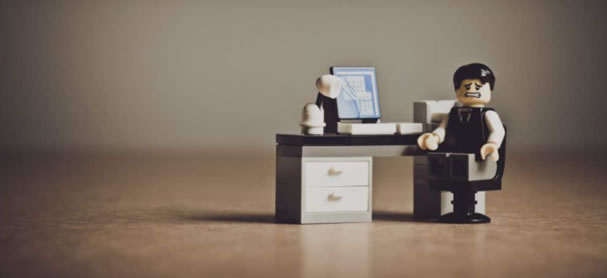
Before we look at ways to gain confidence for your post-recovery job interviews, let’s tackle the elephant in the room first. Employment gaps on your resume will be obvious to any potential employer: they’re guaranteed to ask about them.
How do you navigate such a tricky subject without damaging your employment opportunities?
Option One: Tell the Truth (But Not the Whole Truth)
You don’t have to go into detail if you’re not comfortable or think it may harm your chances of getting the job.
The most important thing about explaining any employment gap is to put a positive spin on it. This will show employers that you are an optimist and likely to be a solution finder instead of a problem-creator.
You can tell your interviewers that you spent a period facing ill health and that you’re now fully recovered. Alternatively, explain your absence from work as a family crisis that needed handling but is now over.
Both of these options are the truth – but they still cover your privacy. Addiction is a legitimate illness, and it causes family crises, too. You’re not lying by keeping the detail as minimal as possible, yet offering some explanation will put employers’ minds at ease about your employment gap.
Option Two: Be Totally Honest
If you feel comfortable, be totally open and honest about your employment gap. This may depend on the type of employer you’re trying to land a job with, too. With a little research, you’ll get a feel on their approach to employee addiction recovery.
Some jobs may even benefit from a completely frank approach. For example, if you want to use your recovery experience to help others by working for an addiction center or community program, your real-life experience is essential to understanding clients.
If your addiction has affected your criminal record, make sure you’re up-front about this. If you don’t admit to a record and you’re hired, but your employer later finds out, they can fire you for misconduct.
FOR MANY MORE DETAILS ON THIS SUBJECT SEE WEBSITE
|
| |
| |
Over 750,000 hits have been generated since January - 2005
|
|